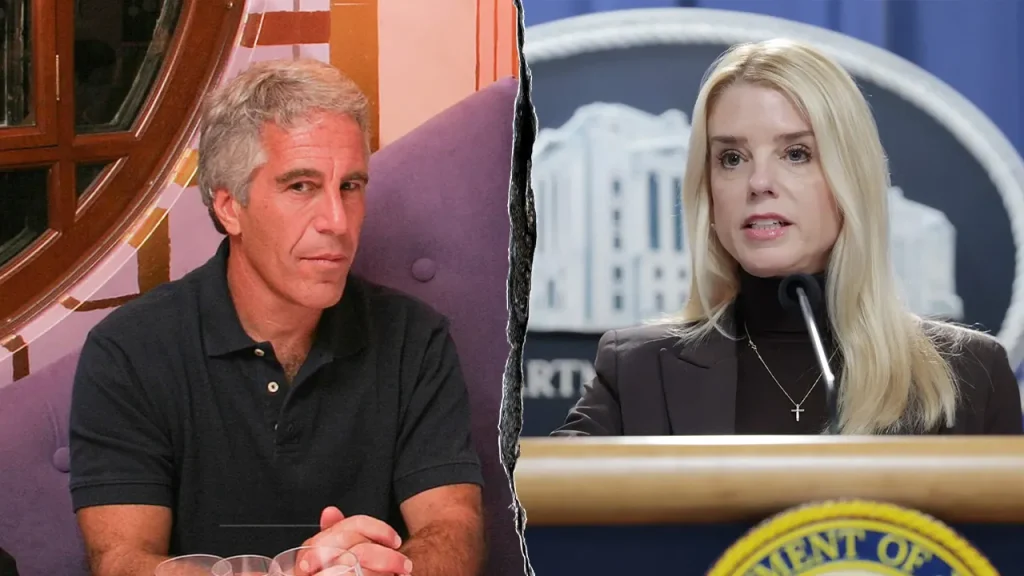Justice Department Moves to Unseal Epstein Files Following New Law
In a significant development for transparency in high-profile criminal cases, the Justice Department has formally requested a federal judge to unseal grand jury materials and lift protective orders in the Jeffrey Epstein and Ghislaine Maxwell cases. This action follows President Donald Trump’s signing of the Epstein Files Transparency Act on November 19, 2025, which mandates the release of unclassified records related to Epstein within a 30-day timeframe. The law represents a rare moment of bipartisan cooperation, passing the House with a nearly unanimous 421-1 vote before receiving unanimous consent in the Senate. The legislation allows for limited redactions to protect victim privacy and active investigations, but these must be narrowly tailored and publicly justified in the Federal Register—a significant departure from standard protocols surrounding grand jury materials and sensitive court documents.
The Justice Department’s legal argument centers on congressional intent, asserting that the new law explicitly authorizes disclosure of these materials, effectively overriding the traditional secrecy provisions outlined in the Federal Rules of Criminal Procedure. This position represents a notable shift in the department’s approach, as it had previously refused to release such materials when the FBI and DOJ stated in July they would not unseal relevant documents, citing the closure of Epstein’s case. In response to the government’s motion, the judge overseeing the Maxwell case has established a timeline for proceedings, directing Maxwell to file her position by December 3 and allowing victims to submit letters to the court by the same deadline. The government will then have until December 10 to respond, after which the judge will make his ruling—though he has acknowledged the 30-day statutory deadline for Attorney General Pam Bondi to release the materials.
The scope of the mandated disclosure is remarkably broad, covering not just court records but internal communications, investigative materials, and files referencing individuals in Epstein’s prior cases and trafficking allegations. The law also requires the release of documents pertaining to Epstein’s death in federal custody, which occurred in 2019 while he awaited trial on federal sex trafficking charges. However, the legislation provides important carve-outs for victim protection, allowing authorities to withhold or redact files containing victims’ names, child sexual abuse material, classified content, or information that could impact ongoing investigations. Attorney General Bondi confirmed on Wednesday that the department would comply with the law’s requirement to publish the files online in a searchable format within the 30-day window, signaling the administration’s commitment to executing this unprecedented disclosure.
Public interest in these files has been intense, particularly among Trump supporters who have called for the release of Epstein’s alleged “client list” and further details surrounding his death. However, it’s important to note that while some documents may contain authentic communications, statements attributed to Epstein in previously revealed emails remain unverified. These materials do not allege wrongdoing by Trump and only mention him in passing. No law enforcement records have emerged linking Trump to Epstein’s criminal activities, despite public speculation about their past social connections. This context underscores the complex nature of these documents and the careful approach needed when interpreting their contents once released.
The congressional push for transparency was spearheaded by an unlikely bipartisan duo—Representatives Thomas Massie (R-Ky.) and Ro Khanna (D-Calif.)—who pressed for months to advance the legislation. The near-unanimous House support reflects the broad political consensus around the need for disclosure, though it wasn’t without dissent. Representative Clay Higgins (R-La.) cast the lone vote against the measure, expressing concern that the bill “reveals and injures thousands of innocent people—witnesses, people who provided alibis, family members, etc.” House Speaker Mike Johnson (R-La.) supported the legislation while voicing similar reservations about its potential unintended consequences, highlighting the delicate balance between transparency and privacy protection that lawmakers attempted to strike in crafting the bill.
The Epstein Files Transparency Act represents an extraordinary legislative intervention into an ongoing legal matter of intense public interest. Epstein’s 2019 death by suicide while in federal custody and Maxwell’s subsequent conviction and 20-year sentence for similar offenses left many questions unanswered about the full extent of their crimes and potential accomplices. The impending release of these documents may provide new insights into one of the most notorious sex trafficking operations in recent history, though expectations should be tempered by the reality that many records may contain sensitive information requiring redaction under the law’s provisions. As the Justice Department works to comply with the 30-day deadline, the public awaits a potentially unprecedented window into the investigation of crimes that shocked the conscience of the nation and raised troubling questions about how Epstein operated with impunity for so long despite numerous allegations against him over many years.


